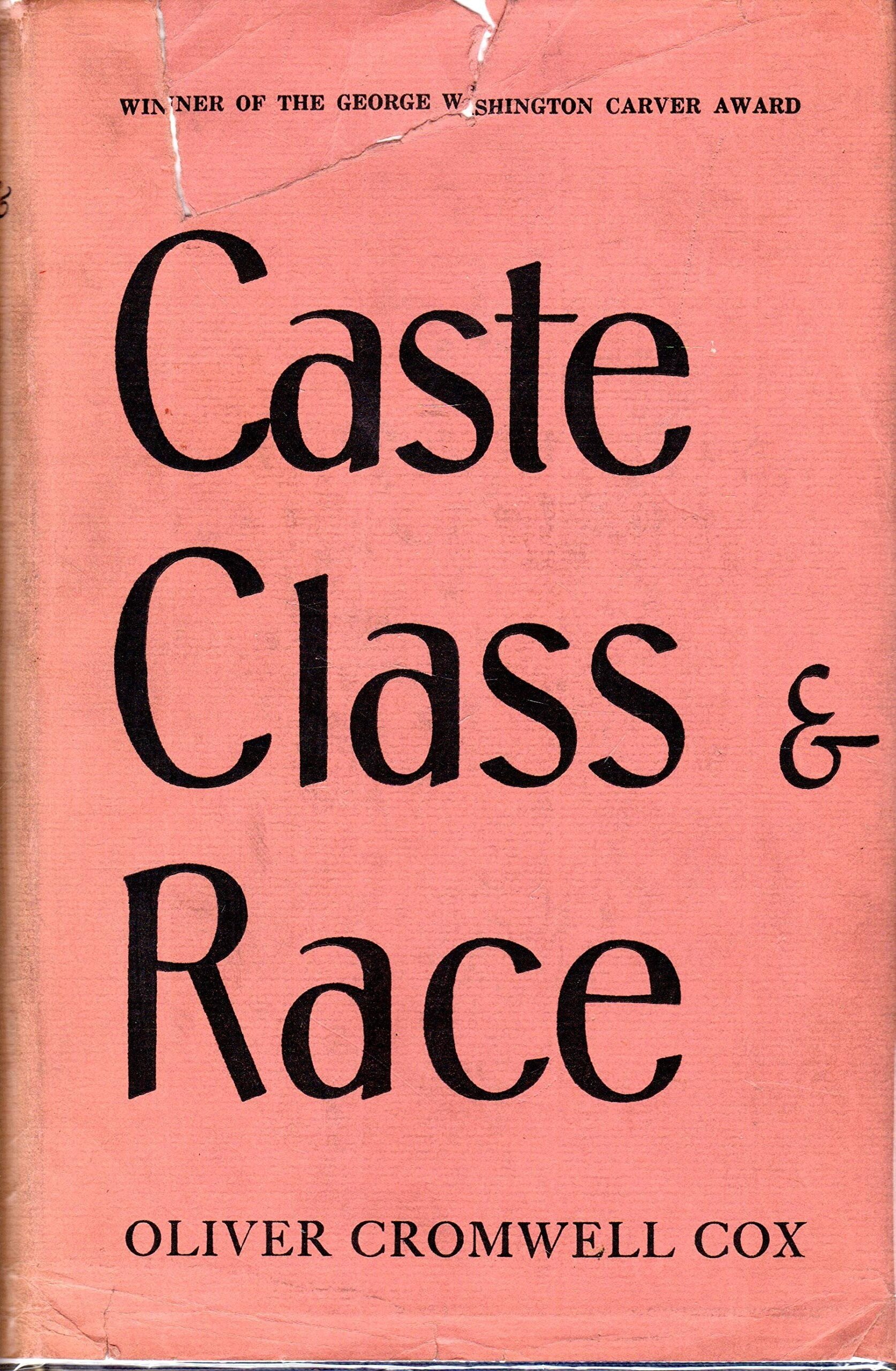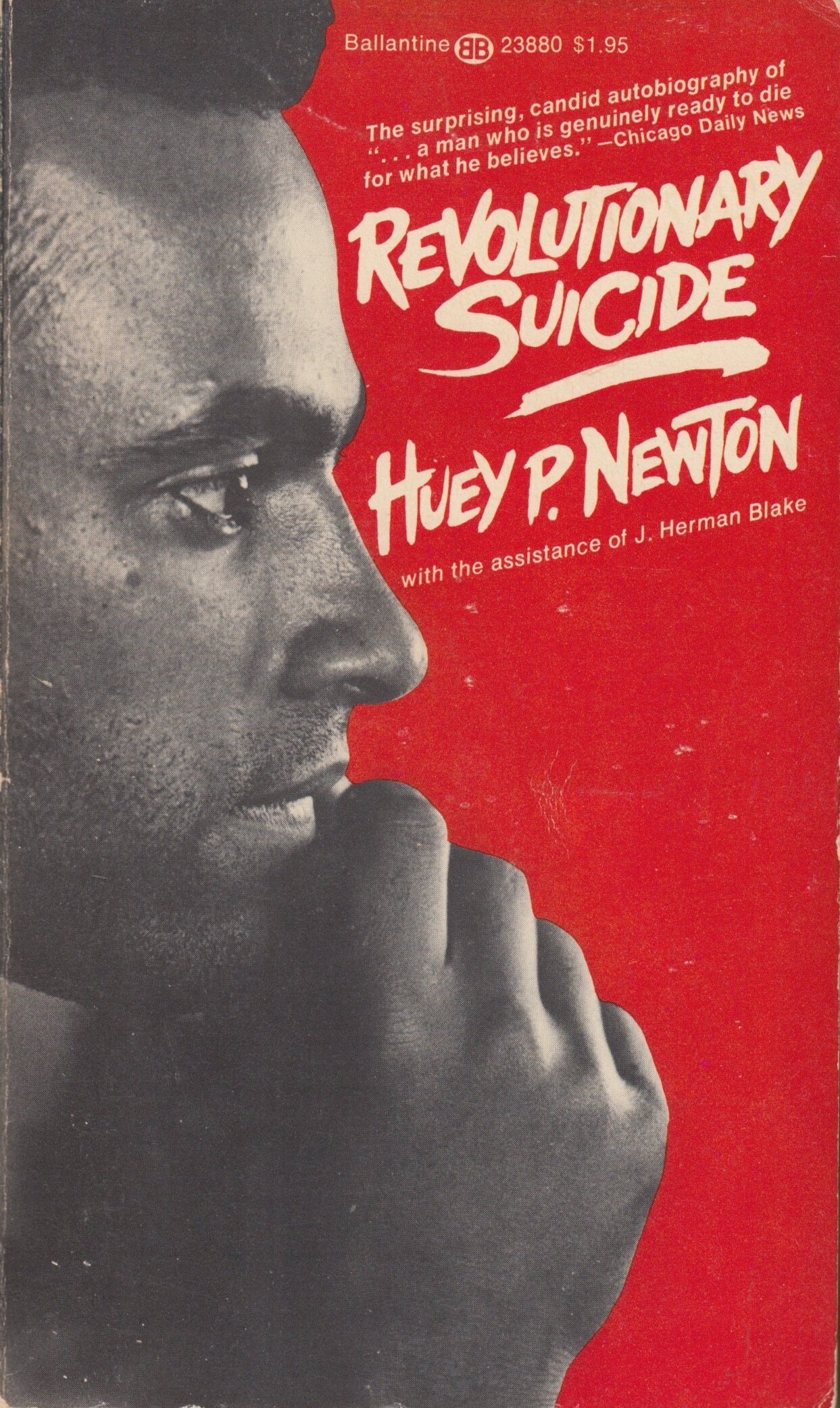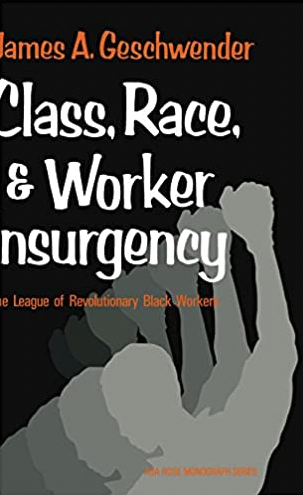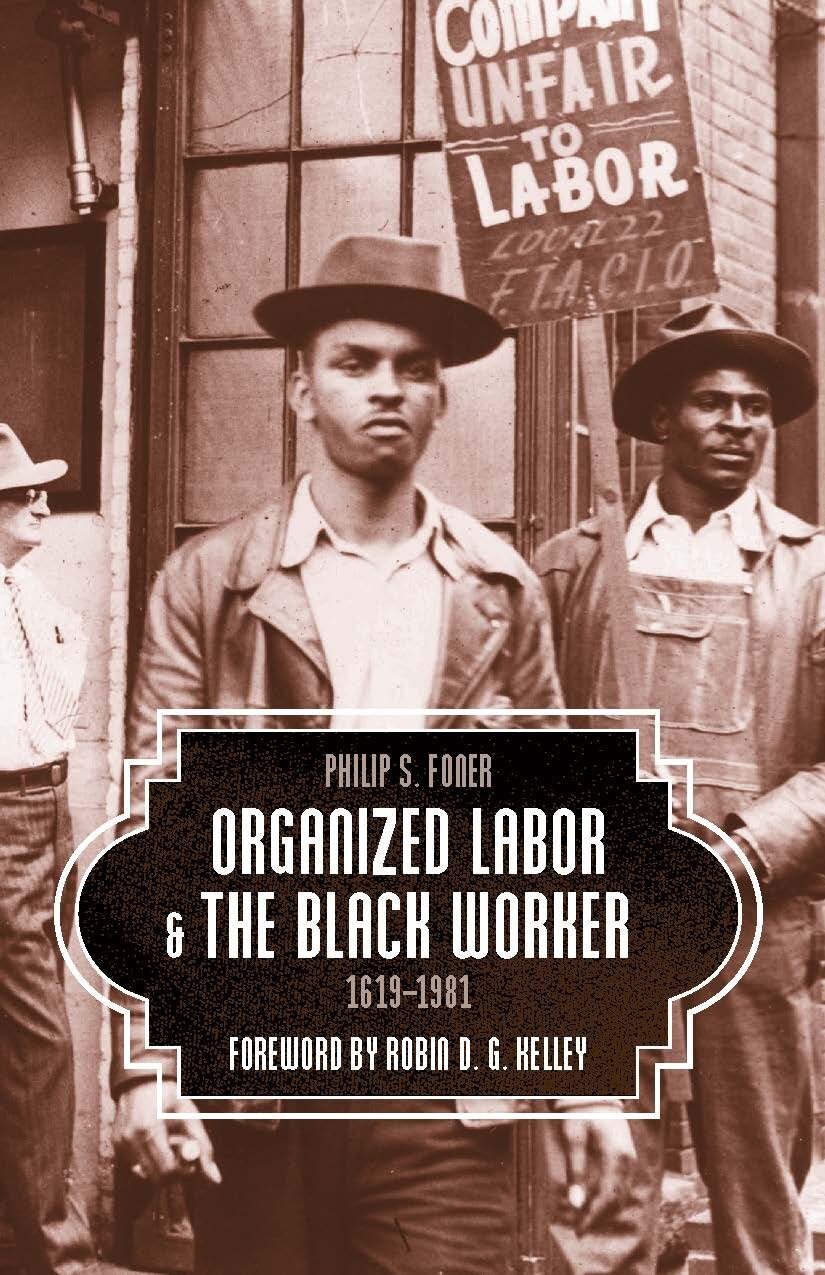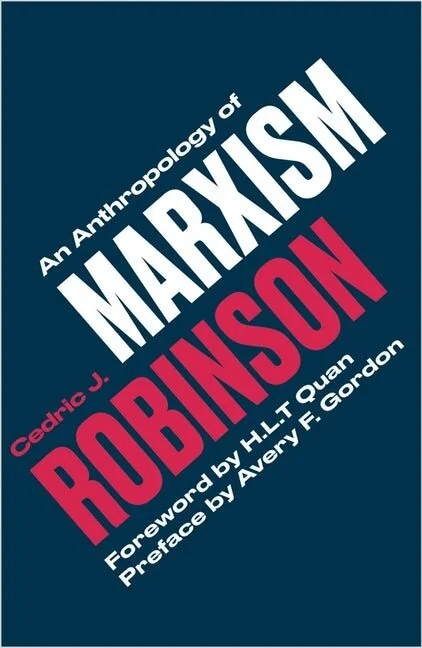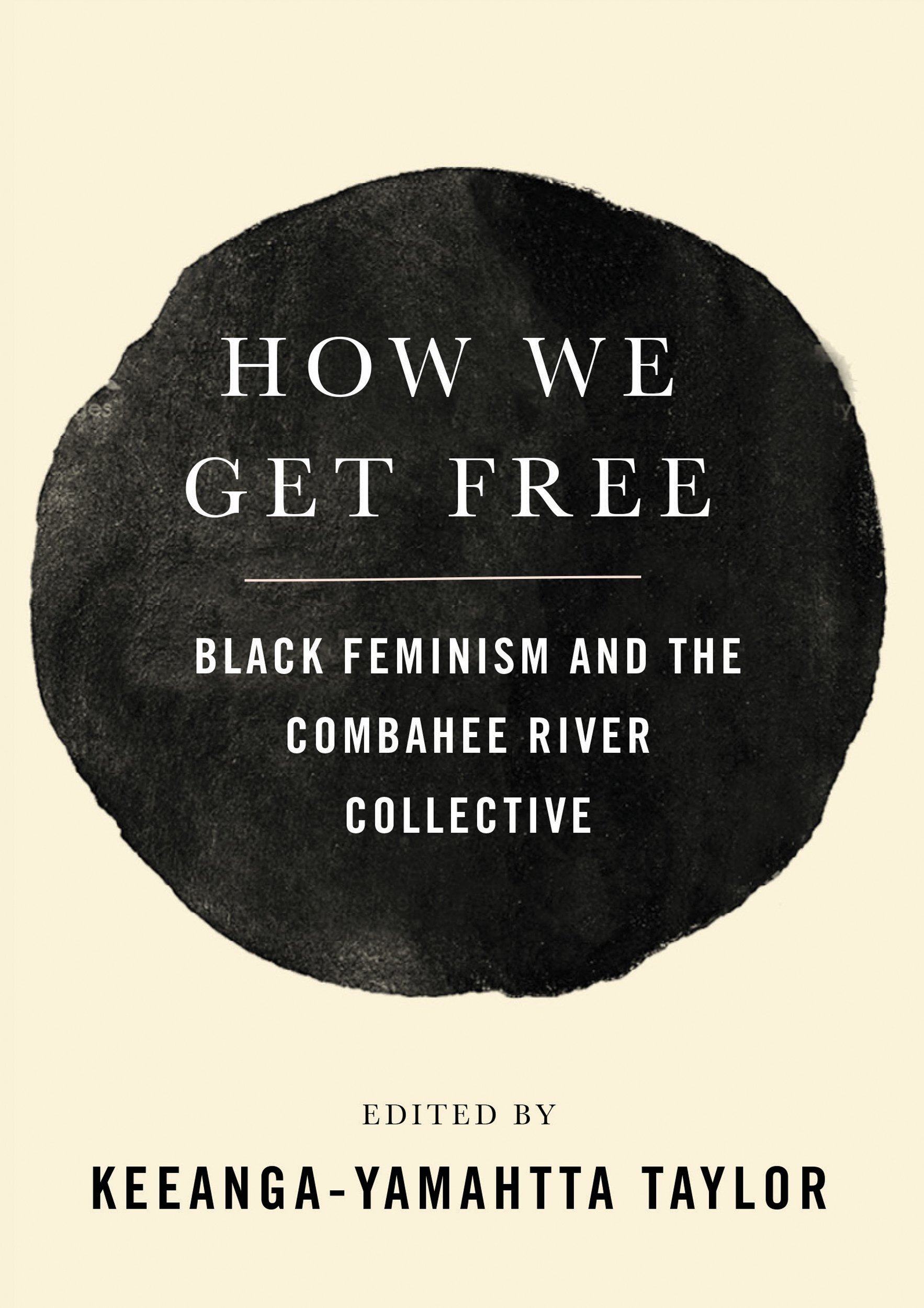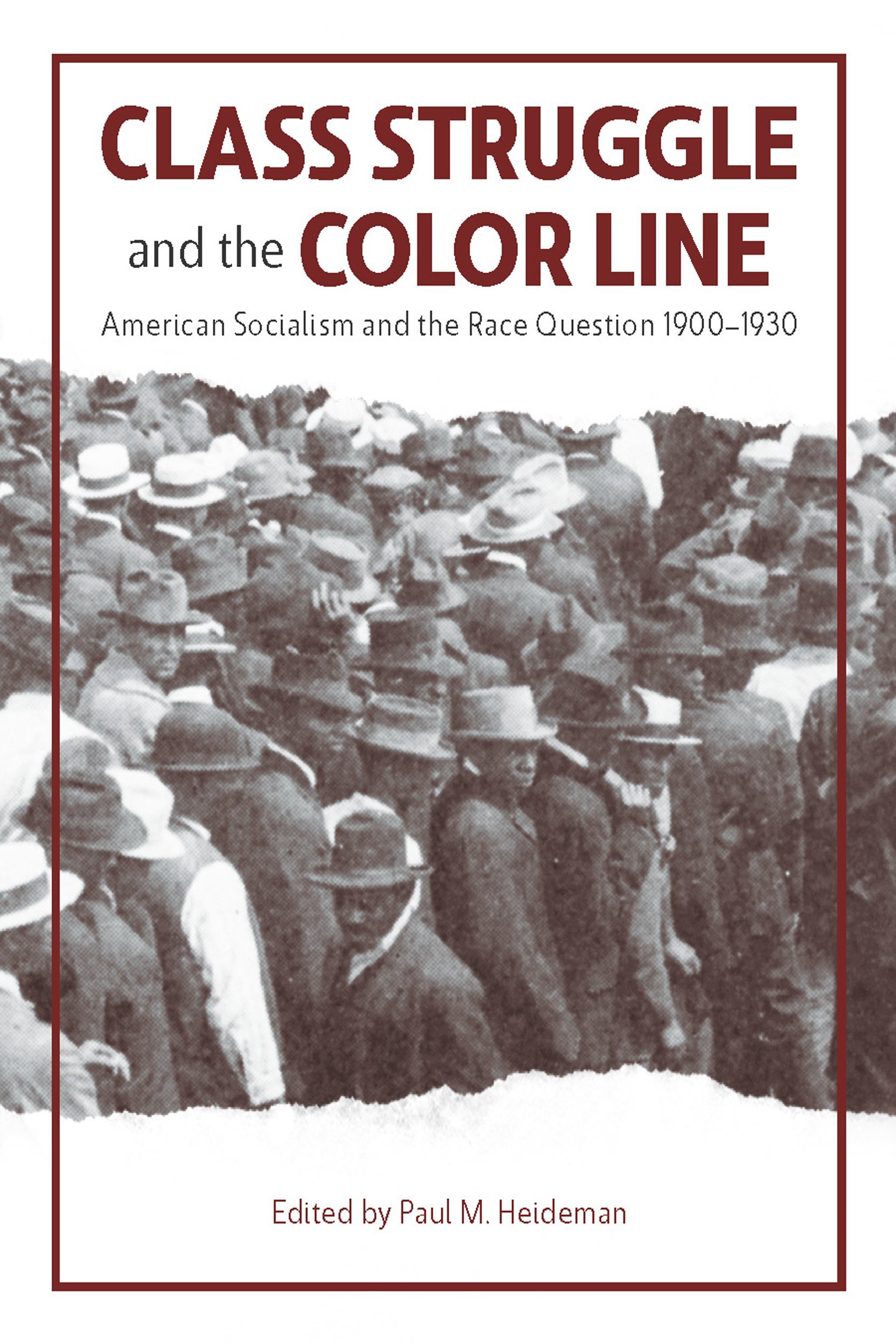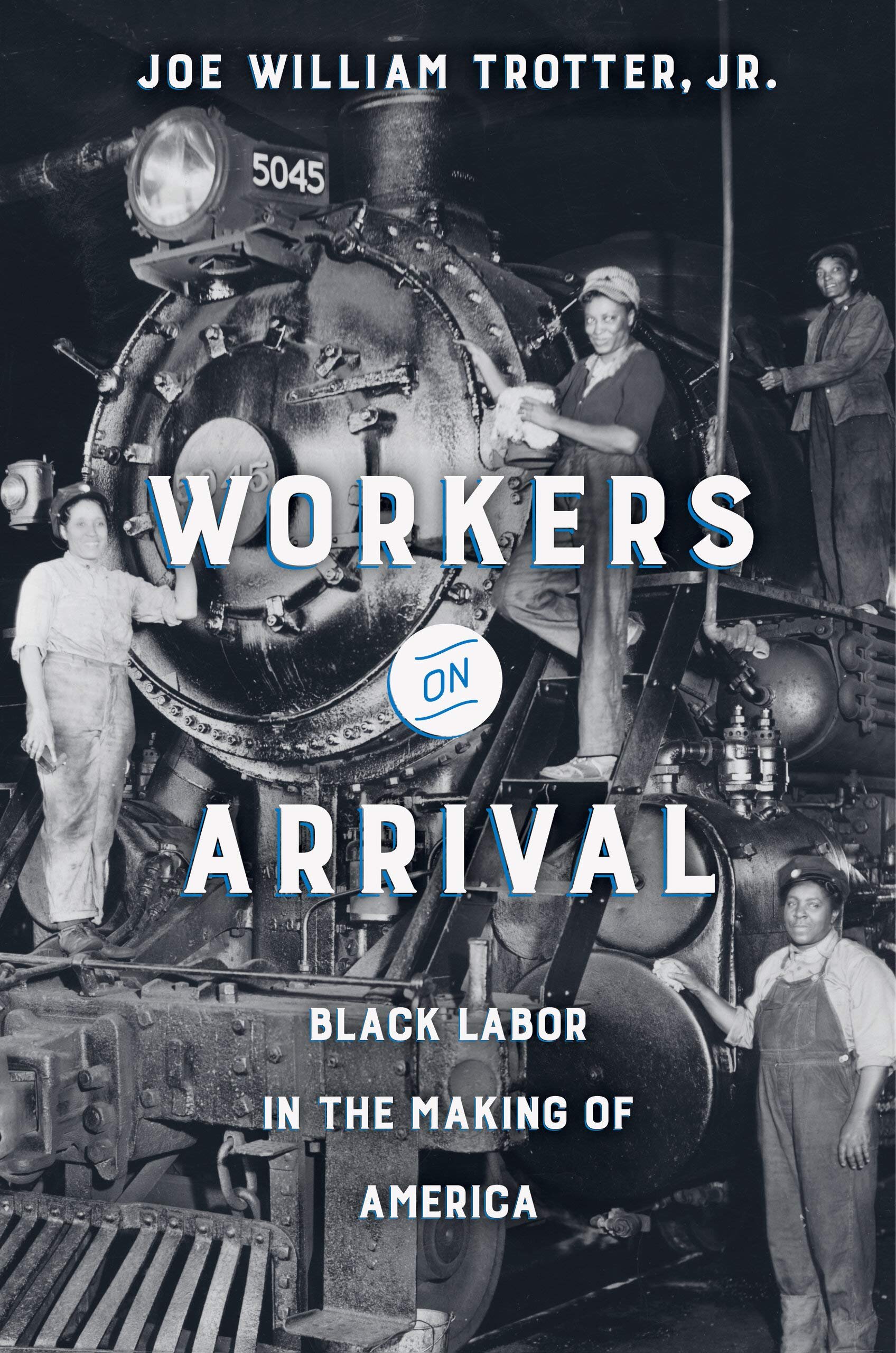
a guide to books on black labor history and socialism
Early 1900’s
The Distribution of Wealth (1910)
G.W. Woodbey
This book is written to show those who are anxious to know, how it is possible to distribute the wealth produced by collective labor, after Socialism has overthrown the capitalist method of distribution . It is written not so much for socialists as it is for those who would be if they could see any possible way of distributing wealth better than what we now have. I have therefore written in the plainest words at my command. (pdf)
When Africa Awakes (1920)
Hubert H. Harrison
In his lifetime, Harrison (1883-1927) worked diligently toward the unity and enlightenment of his community. A labor leader, editor, teacher, and author, Harrison is at once the contemporary social critic and wise prophet speaking to us across generations. In the article "The New Politics," Harrison, who was an advocate for revolutionary change, calls for a political agenda with an independent Black political thrust. He provides a clear and early call for Blacks to work in their own political interest.(pdf)
Black Reconstruction in America (1935)
W.E.B. DuBois
This pioneering work was the first full-length study of the role black Americans played in the crucial period after the Civil War, when the slaves had been freed and the attempt was made to reconstruct American society. Hailed at the time, Black Reconstruction in America 1860-1880 has justly been called a classic.
The Black Jacobins (1938)
C.L.R. James
A book by Trinidadian historian C. L. R. James, a history of the Haitian Revolution of 1791–1804. He went to Paris to research this work, where he met Haitian military historian Alfred Auguste Nemours. James's text places the revolution in the context of the French Revolution, and focuses on the leadership of Toussaint L'Ouverture, who was born a slave but rose to prominence espousing the French Revolutionary ideals of liberty and equality.
1940’s
Capitalism and Slavery (1944)
Eric Williams
The doctoral dissertation of Eric Williams, who was the first Prime Minister of Trinidad and Tobago in 1962. It advances a number of theses on the impact of economic factors on the decline of slavery, specifically the Atlantic slave trade and slavery in the British West Indies, from the second half of the 18th century.
The Communists and the Struggle for Negro Liberation (1945)
James W. Ford
The doctoral dissertation of Eric Williams, who was the first Prime Minister of Trinidad and Tobago in 1962. It advances a number of theses on the impact of economic factors on the decline of slavery, specifically the Atlantic slave trade and slavery in the British West Indies, from the second half of the 18th century. (pdf)
Caste, Class, and Race (1948)
Oliver Cromwell Cox
A 1948 sociological analysis of the issues of caste, class, and race relations in the United States and the world.
1950’s
Black Bourgeoisie (1955)
E. Franklin Frazier
Simultaneously reviled and revered — revered for its skillful dissection of one of America’s most complex communities, reviled for daring to cast a critical eye on a section of black society that had achieved the trappings of the white, bourgeois ideal.
Pan Africanism or Communism? (1956)
George Padmore
Shares the distinction common to most great works of historical writing of being the creation of a participant-as-historian. For, next to the colossal figure of W.E.B. Du Bois, Padmore, the political revolutionary, holds an exalted position in the pantheon of Pan-Africanism, and in this, his chef d'oeuvre, he has presented us with a most vivid account of that movement in which he played so exemplary a role.
Here I Stand (1958)
Paul Robeson
The most celebrated black American of his day, Robeson was blacklisted, silenced and had his US passport withheld because of his criticism of McCarthyism, his fascination with the Soviet Union and his strong support of African independence.
A Dying Colonialism (1959)
Frantz Fanon
An incisive and illuminating account of how, during the Algerian Revolution, the people of Algeria changed centuries-old cultural patterns and embraced certain ancient cultural practices long derided by their colonialist oppressors as primitive, in order to destroy those same oppressors. Fanon uses the fifth year of the Algerian Revolution as a point of departure for an explication of the inevitable dynamics of colonial oppression
1960’s
Wretched of the Earth (1961)
Frantz Fanon
A veritable handbook of social reorganization for leaders of emerging nations, has been reflected all too clearly in the corruption and violence that has plagued present-day Africa. The Wretched of the Earth has had a major impact on civil rights, anticolonialism, and black consciousness movements around the world, and this bold new translation by Richard Philcox reaffirms it as a landmark.
Black Man In Red Russia (1964)
Homer Smith
As a black man disillusioned with life in the U.S. in 1930's in the U.S. who travelled to Russia in 1932 to see for himself whether the "democracy of the proletariat" was really a myth, Smith lived in the USSR for 14 eventful years, witnessing famine, the birth of the new Soviet Constitution in 1936, the horrible purges that followed, and the rise of the great industrial complex that was conceived during the monumental Five-Year Plans.
Towards the African Revolution (1964)
Frantz Fanon
This powerful collection of articles, essays, and letters spans the period between Black Skin, White Masks (1952) and The Wretched of the Earth (1961), Fanon’s landmark manifesto on the psychology of the colonized and the means of empowerment necessary for their liberation. These pieces display the genesis of some of Fanon’s greatest ideas — ideas that became so vital to the leaders of the American civil rights movement.
Black Power: Politics and Liberation (1967)
Kwame Ture & Charles V. Hamilton
In 1967, this revolutionary work exposed the depths of systemic racism in this country and provided a radical political framework for reform: true and lasting social change would only be accomplished through unity among African-Americans and their independence from the preexisting order.
Sieze the Time (1968)
Bobby Seale
A longtime activist and co-founder of The Black Panther Party’s riveting first-person account on the evolution of The Party as a national organization. In the words of Seale the book "...continues to have a universal apppeal as an account of an oppressed people's struggle for human liberation."
Groundings With My Brothers (1969)
Walter Rodney
Follows the global circulation of emancipatory ideas, from the black students of North America to the Rasta counterculture of Jamaica and beyond. The book is striking in its simultaneous ability to survey the wide and heterogeneous international context while remaining anchored in grassroots politics, as Rodney offers us first-hand accounts of mass movement organizing.
1970’s
The Black Panthers Speak (1970)
Philip S. Foner
For over three decades, The Black Panthers Speak has represented the most important single source of original material on the Black Panther Party. With cartoons, flyers, and articles by Huey P. Newton, Bobby Seale, and Eldridge Cleaver, this collection endures as an essential part of civil-rights history.
How Europe Underdeveloped Africa (1971)
Walter Rodney
Rodney’s Marxist analysis went far beyond the heretofore accepted approach in the study of Third World underdevelopment. How Europe Underdeveloped Africa is an excellent introductory study for the student who wishes to better understand the dynamics of Africa’s contemporary relations with the West.
Revolutionary Suicide (1973)
Huey P. Newton
From Newton's childhood on the streets of Oakland to his adolescence and struggles with the system, from his role in the Black Panthers to his solitary confinement in the Alameda County Jail, Revolutionary Suicide is smart, unrepentant, and thought-provoking in its portrayal of inspired radicalism.
The Socialists Within the Black American Experience (1975)
John M. Andrick
Leading scholars of this field, labor historians Sterling Spero and Abram Harris, intellectual historian Har()ld Cruse, and biographer and recent recipient of the Sidney Hillman Award, Jervis Anderson, - 3 - have offered important contributions to the understanding of the Messenger period. Thus far, no volume has appeared dealing solely with the history of Negro socialists as a unit functioning within the black community or as a part of the international socialist movement. (pdf)
Class, Race, and Worker Insurgency (1977)
James A. Geschwender
Provides a historical account and case study of a little-publicized social movement, the League of Revolutionary Black Workers. The League, a black Marxist-Leninist movement that developed among automobile workers in Detroit, appeared shortly after the 1967 Detroit urban disorders. It spread from the automobile industry to other industries, and from Detroit to other urban areas, before an internal split led to its demise in 1971.
Black Bolshevik: Autobiography of an Afro-American Communist (1978)
Harry Haywood
The autobiography of Harry Haywood, the son of former slaves who became a leading member of the Communist Part USA and a pioneering theoretician on the Afro-American struggle. The author’s first-hand accounts of the Chicago race riot of 1919, the Scottsboro Boys’ defense, communist work in the South, the Spanish Civil War, the battle against the revisionist betrayal of the Party, and other history-shaping events are must reading for all who are interested in Black history and the working class struggle. (pdf)
The Narrative of Hosea Hudson (1979)
Nell Irvin Painter
Born into a Georgia sharecropper family in 1898, Hosea Hudson moved to Birmingham, Alabama, to work in the steel mills in the turbulent 1930s and 1940s and became a member of the Communist Party as well as president of a CIO union local. It was a hard, dangerous life, to be black and communist and pro-union, and Hudson talked about that life to Nell painter, who brilliantly recreates it in this collaborative oral autobiography.
Unity and Struggle (1979)
Amilcar Cabral
How was it possible for Guinea-Bissau, with no access to modern technology, ideas, or organizational forms, its population suffering under one of the most repressive of all colonial regimes, to build a victorious movement for revolutionary change? A key to understanding this process lies in the writings of Amilcar Cabral, one of the great revolutionary leaders produced by the long and arduous campaign for the liberation of Portuguese-dominated Africa — of Angola, Cape Verde, Guinea-Bissau, Mozambique, and São Tomé.
1980’s
Women, Race, and Class (1981)
Angela Y. Davis
A powerful history of the social and political influence of whiteness and elitism in feminism, from abolitionist days to the present, and demonstrates how the racist and classist biases of its leaders inevitably hampered any collective ambitions.
Afrocommunism (1981)
Marina & David Ottaway
Through case studies of Angola, Mozambique, and Ethiopia (as well as shorter analyses of other countries), they argue the use of Marxist ideology as a blueprint for development gives these states a steady commitment to a particular pattern of state-owned and collectivized economic institutions, as well as a firm foreign alignment with the Eastern bloc.
Organized Labor and the Black Worker(1982)
Philip Sheldon Foner
Traces the radical history of Black workers’ contribution to the American labor movement.
Black Marxism (1983)
Cedric J. Robinson
Efforts to understand black people's history of resistance solely through the prism of Marxist theory are incomplete and inaccurate. Marxist analyses tend to presuppose European models of history and experience that downplay the significance of black people and black communities as agents of change and resistance. Black radicalism must be linked to the traditions of Africa and the unique experiences of blacks on western continents, Robinson argues, and any analyses of African American history need to acknowledge this.
How Capitalism Underdeveloped Black America (1983)
Manning Marable
A study of the intersection of racism and class in the United States. It has become a standard text for courses in American politics and history, and has been central to the education of thousands of political activists since the 1980s
Black & Red (1986)
Gerald Horne
In investigating Du Bois' last 20 years, Horne shows how the confluence of Cold War anticommunism and attempts to discredit the civil rights and anticolonial movements influenced the evaluation of Du Bois' activity. The recently opened papers of W.E.B. Du Bois and previously unexamined papers of the NAACP are among the new sources Horne examined for his study.
Black Milwaukee: The Making of an Industrial Proletariat (1985)
Joe William Trotter
The blacks in Black Milwaukee were not only ghetto dwellers; they were also industrial workers. The process by which they achieved this status is the subject of Trotter's ground-breaking study. This second edition features a new preface and acknowledgments, an essay on African American urban history since 1985, a prologue on the antebellum and Civil War roots of Milwaukee's black community, and an epilogue on the post-World War II years and the impact of deindustrialization, all by the author. Brief essays by four of Trotter's colleagues--William P. Jones, Earl Lewis, Alison Isenberg, and Kimberly L. Phillips--assess the impact of the original Black Milwaukee on the study of African American urban history over the past twenty years.
Black Liberation / Red Scare (1986)
Gerald Horne
Though it examines the numerous grassroots campaigns that he was involved in, it is first and foremost a study of the man and secondarily a study of the Communist party from the 1930s to the 1960s. By examining the public life of an important party leader, Gerald Horne uniquely approaches the story of how and why the party rose - and fell.
The Making of the Black Middle Class (1988)
Ron Ramdin
From the development of a small black presence in the sixteenth century, through the colonial labour institutions of slavery, indentureship, and trade unionism, Ramdin expertly guides us through the stages of creation for a UK minority whose origins are often overlooked. He examines the emergence of a black radical ideology underpinning twentieth-century struggles against unemployment, racial attacks and workplace inequality, and delves into the murky realms of employer and trade union racism.
Black On Red (1988)
Robert Robinson
A Jamaican-born toolmaker who worked in the auto industry in the United States. At the age of 23, he was recruited to work in the Soviet Union, where he spent 44 years after the government refused to give him an exit visa for return. Starting with a one-year contract by Russians to work in the Soviet Union, he twice renewed his contract. He became trapped by the German invasion of the Soviet Union during World War II and the government's refusal to give him an exit visa. He earned a degree in mechanical engineering during the war.
1990’s
Hammer and Hoe: Alabama Communists during the Great Depression (1990)
Robin D.G. Kelley
The Alabama Communist Party was made up of working people without a Euro-American radical political tradition: devoutly religious and semiliterate black laborers and sharecroppers, and a handful of whites, including unemployed industrial workers, housewives, youth, and renegade liberals. In this book, Robin D. G. Kelley reveals how the experiences and identities of these people from Alabama's farms, factories, mines, kitchens, and city streets shaped the Party's tactics and unique political culture. The result was a remarkably resilient movement forged in a racist world that had little tolerance for radicals.
The Ethical Dimensions of Marxist Thought (1991)
Cornel West
West shows that not only was ethics an integral part of the development of Marx's own thinking throughout his career, but that this crucial concern has been obscured by such leading and influential interpreters as Engels, Kautsky, Luk?cs, and others who diverted Marx's theory into narrow forms of positivism, economism, and Hegelianism
In Their Own Interest: Race, Class and Power in Twentieth-Century Norfolk, Virginia (1993)
Earl Lewis
In Their Own Interests presents a cross-section of southern urban blacks—the power-brokers and lesser-knowns, Garvey followers and communist enthusiasts—who came to live in Norfolk between the Civil War and the Civil Rights Movement.
Resisting State Violence (1996)
Joy James
Robinson traces the emergence of Black political cultures in the United States from slave resistances in the 16th and 17th centuries to the civil rights movements of the present. Drawing on the historical record, he argues that Blacks have constructed both a culture of resistance and a culture of accommodation based on the radically different experiences of slaves and free Blacks.
Black Movements In America (1997)
Cedric J. Robinson
Robinson traces the emergence of Black political cultures in the United States from slave resistances in the 16th and 17th centuries to the civil rights movements of the present. Drawing on the historical record, he argues that Blacks have constructed both a culture of resistance and a culture of accommodation based on the radically different experiences of slaves and free Blacks.
The Cry Was Unity: Communists and African Americans (1998)
Mark Solomon
The Communist Party was the only political movement on the left in the late 1920s and 1930s to place racial justice and equality at the top of its agenda and to seek, and ultimately win, sympathy among African Americans. This historic effort to fuse red and black offers a rich vein of experience and constitutes the theme of The Cry Was Unity.
Seeing Red: Federal Campaigns Against Black Militancy (1998)
Theodore Kornweibel, Jr.
A gripping, painstakingly documented account of a neglected chapter in the history of American political intelligence.
2000’s
Class Notes (2000)
Adolph Reed, Jr.
The book begins with a consideration of the theoretical and practical strategies of the U.S. left over the last three decades: Reed argues against the solipsistic approaches of cultural or identity politics, and in favor of class-based political interpretation and action.
Anthropology of Marxism (2001)
Cedric J. Robinson
Analysis of the history of communalism that has been claimed by Marx and Marxists. Suggesting that the socialist ideal was embedded both in Western and non-Western civilizations and cultures long before the opening of the modern era and did not begin with or depend on the existence of capitalism, Robinson interrogates the social, cultural, institutional, and historical materials that were the seedbeds for communal modes of living and reimagining society. Ultimately, it pushes back against Marx's vision of a better society as rooted in a Eurocentric society, and cut off from its own precursors.
Freedom Dreams (2002)
Robin D.G. Kelley
Focusing on the visions of activists from C. L. R. James to Aime Cesaire and Malcolm X, Kelley writes of the hope that Communism offered, the mindscapes of Surrealism, the transformative potential of radical feminism, and of the four-hundred-year-old dream of reparations for slavery and Jim Crow. From 'the preeminent historian of black popular culture' (Cornel West), an inspiring work on the power of imagination to transform society.
Marx, Tocqueville, and Race in America (2003)
August H. Nimtz Jr.
While Alexis de Tocqueville described America as the 'absolute democracy, ' Karl Marx saw the nation as a 'defiled republic' so long as it permitted the enslavement of blacks. In this insightful political history, Nimtz argues that Marx and his partner, Frederick Engels, had a far more acute and insightful reading of American democracy than Tocqueville because they recognized that the overthrow of slavery and the cessation of racial oppression were central to its realization.
Communists in Harlem During the Depression (2005)
Mark Naison
This work, largely based on primary materials and interviews with leading black Communists from the 1930s, is the first to fully explore this provocative encounter between whites and blacks. It provides a detailed look at an exciting period of reform, as well as an intimate portrait of Harlem in the 1920s and 30s, at the high point of its influence and pride.
Black Liberation and Socialism (2005)
Ahmed Shawki
A sharp and insightful analysis of historic movements against racism in the United States—from the separatism of Marcus Garvey, to the militancy of Malcolm X and the Black Panther Party, to the eloquence of Martin Luther King Jr. and much more—with essential lessons for today’s struggles.
Left of Karl Marx: The Political Life of Black Communist Claudia Jones(2005)
Carole Boyce Davies
Davies assesses the activism, writing, and legacy of Claudia Jones (1915–1964), a pioneering Afro-Caribbean radical intellectual, dedicated communist, and feminist. Jones is buried in London’s Highgate Cemetery, to the left of Karl Marx—a location that Boyce Davies finds fitting given how Jones expanded Marxism-Leninism to incorporate gender and race in her political critique and activism.
Claude McKay, Code Name Sasha: Queer Black Marxism and the Harlem Renaissance (2007)
Gary Edward Holcomb
In this study of four of McKay’s texts -- the first literary, cultural, and historical analysis to address the multilayered "queer black anarchism" in McKay's writings--Holcomb argues that McKay's "fringe" perspective not only targeted him for investigation but also contributed to a declining literary reputation. Perceived as mystifying and unacceptable because of his dedication to communism, McKay is perplexing and difficult to classify within the traditional constructs of the Harlem Renaissance.
2010’s
Sojourning for Freedom (2011)
Erik S. McDuffie
Sojourning for Freedom portrays pioneering black women activists from the early twentieth century through the 1970s, focusing on their participation in the U.S. Communist Party (CPUSA) between 1919 and 1956. Erik S. McDuffie considers how women from diverse locales and backgrounds became radicalized, joined the CPUSA, and advocated a pathbreaking politics committed to black liberation, women’s rights, decolonization, economic justice, peace, and international solidarity.
Black Communist in the Freedom Struggle (2012)
Gwendolyn Midlo Hall
After fighting in France during the war, he studied how to make revolutions in Moscow during the 1920s, led the Communist Party’s move into the Deep South in 1931, helped to organize the campaign to free the Scottsboro Boys, worked with the Sharecroppers’ Union, supported protests in Chicago against Mussolini’s invasion of Ethiopia, fought with the International Brigades in Spain, served in the Merchant Marines during World War II, and continued to fight for the right of self-determination for the Afro-American nation in the United States until his death in 1985.
Opposing Jim Crow: African Americans and the Soviet Indictment of U. S. Racism (2012)
Meredith L. Roman
Examines the period between 1928 and 1937, when the promotion of antiracism by party and trade union officials in Moscow became a priority policy. Soviet leaders stood to gain considerable propagandistic value at home and abroad by drawing attention to U.S. racism, their actions simultaneously directed attention to the routine violation of human rights that African Americans suffered as citizens of the United States. Soviet policy also challenged the prevailing white supremacist notion that blacks were biologically inferior and thus unworthy of equality with whites. African Americans of various political and socioeconomic backgrounds became indispensable contributors to Soviet antiracism and helped officials in Moscow challenge the United States’ claim to be the world’s beacon of democracy and freedom.
America’s First Black Socialist (2012)
Nikki M. Taylor
In pursuit of his foremost goal, full and equal citizenship for African Americans, Peter Humphries Clark (1829--1925) defied easy classification. He was, at various times, the country's first black socialist, a loyal supporter of the Republican Party, and an advocate for the Democrats. A pioneer educational activist, Clark led the fight for African Americans' access to Ohio's public schools and became the first black principal in the state. He supported all-black schools and staunchly defended them even after the tide turned toward desegregation. As a politician, intellectual, educator, and activist, Clark was complex and enigmatic.
Black Against Empire (2013)
Joshua Bloom & Waldo Martin
In Oakland, California, in 1966, community college students Bobby Seale and Huey Newton armed themselves, began patrolling the police, and promised to prevent police brutality. Unlike the Civil Rights Movement that called for full citizenship rights for blacks within the U.S., the Black Panther Party rejected the legitimacy of the U.S. government and positioned itself as part of a global struggle against American imperialism. In the face of intense repression, the Party flourished, becoming the center of a revolutionary movement with offices in 68 U.S. cities and powerful allies around the world.
Pan-Africanism and Communism (2013)
Hakim Adi
This book examines the interaction between the Communist International (Comintern) and the global struggle for the liberation of Africa and the African Diaspora during the inter-war period. In particular, it focuses on the history of the International Trade Union Committee of Negro Workers (ITUCNW), established by the Red International of Labour Unions (Profintern) in 1928 and its activities in Africa, the United States, the Caribbean and Europe.
For Jobs and Freedom (2014)
A. Philip Randolph
The book is organized thematically around his major interests—dismantling workplace inequality, expanding civil rights, confronting racial segregation, and building international coalitions. The editors provide a detailed biographical essay that helps to situate the speeches and writings collected in the book. In the absence of an autobiography, this volume offers the best available presentation of Randolph’s ideas and arguments in his own words
Race to Revolution (2014)
Gerald Horne
The histories of Cuba and the United States are tightly intertwined and have been for at least two centuries. In Race to Revolution, historian Gerald Horne examines a critical relationship between the two countries by tracing out the typically overlooked interconnections among slavery, Jim Crow, and revolution. Slavery was central to the economic and political trajectories of Cuba and the United States, both in terms of each nation's internal political and economic development and in the interactions between the small Caribbean island and the Colossus of the North.
Black Radicals and Marxist Internationalism (2014)
Charles R. Holm
This project investigates historical relationships between Black Radicalism and Marxist internationalism from the mid-nineteenth through the first half of the twentieth century. It argues that contrary to scholarly accounts that emphasize Marxist Euro-centrism, or that theorize the incompatibility of “Black” and “Western” radical projects, Black Radicals helped shape and produce Marxist theory and political movements, developing theoretical and organizational innovations that drew on both Black Radical and Marxist traditions of internationalism. (pdf)
Revolution Has Come (2016)
Robyn C. Spencer
Challenging the belief that the Panthers were a projection of the leadership, Spencer draws on interviews with rank-and-file members, FBI files, and archival materials to examine the impact the organization's internal politics and COINTELPRO's political repression had on its evolution and dissolution. She shows how the Panthers' members interpreted, implemented, and influenced party ideology and programs; initiated dialogues about gender politics; highlighted ambiguities in the Panthers' armed stance; and criticized organizational priorities.
Paul Robeson: the Artist As Revolutionary (2016)
Gerald Horne
Horne discovers within Robeson’s remarkable and revolutionary life the story of the twentieth century’s great political struggles: against racism, against colonialism, against poverty—and for international socialism. This critical and searching biography provides an opportunity for readers to comprehend the triumphs and tragedies of the revolutionary progressive movement of which Robeson was not just a part, but perhaps its most resonant symbol.
How We Get Free (2017)
Keeanga-Yamahtta Taylor
The Combahee River Collective, a path-breaking group of radical black feminists, was one of the most important organizations to develop out of the antiracist and women’s liberation movements of the 1960s and 70s. In this collection of essays and interviews edited by activist-scholar Keeanga-Yamahtta Taylor, founding members of the organization and contemporary activists reflect on the legacy of its contributions to Black feminism and its impact on today’s struggles.
Escaping the Master’s House: Claudia Jones & The Black Marxist Feminist Tradition (2017)
Camryn S. Clarke
Black Marxist Feminism is the route to the liberation of all, because the liberation of the Poor Black Woman (PBW) would mean the end of imperialism, racism, sexism, and capitalism. Claudia Jones is the embodiment of this multifaceted fight for liberation as she fought against the “gross neglect of Negro women ” that personally affected her life day in and day out. Jones 1 became the articulator of this oppression by highlighting the fact that the subjugation of Black people, women, and workers is structural; these groups need to be made inferior in order for the capitalist system to thrive. (pdf)
Louise Thompson Patterson
A Life of Struggle for Justice (2017)
Keith Gilyard
Born in 1901, Louise Thompson Patterson was a leading and transformative figure in radical African American politics. Throughout most of the twentieth century she embodied a dedicated resistance to racial, economic, and gender exploitation. In this, the first biography of Patterson, Keith Gilyard tells her compelling story, from her childhood on the West Coast, where she suffered isolation and persecution, to her participation in the Harlem Renaissance and beyond.
Red International and Black Caribbean Communists in New York City (2017)
Margaret Stevens
Focusing on the period 1919-39, Stevens explores the political roots of a dozen Communist organizations and parties that were headquartered in New York City, Mexico, and the Caribbean. She describes the inner workings of the Red International—the revolutionary global political network established under the Communist International—in relation to struggles against racial and colonial oppression. In doing so, she also highlights how the significant victories and setbacks of black people fighting against racial oppression developed within the context of the global Communist movement.
Class Struggle and the Color Line (2018)
Paul Heideman
Collecting source materials from a diverse array of writers and organizers, this reader provides a new perspective on the complex history of revolutionary debates about fighting anti-Black racism. Contextual material from the editor places each contribution in its historical and political setting, making this volume ideal for both scholars and activists
A Certain Amount of Madness: The Life, Politics and Legacies of Thomas Sankara (2018)
Edited by Amber Murrey
This book looks at Sankara's political philosophies and legacies and their relevance today. Analyses of his synthesis of Pan-Africanism and humanist Marxist politics, as well as his approach to gender, development, ecology and decolonisation offer new insights to Sankarist political philosophies.
Marxism versus Liberalism (2019)
August Nimtz
Exploring the historical scenarios of The European Spring of 1848, the United States Civil War, the 1905 Russian Revolution, the 1917 Russian Revolution, and the end of World War I, Marxism versus Liberalism carefully tests each claim in order to challenge assumed political wisdom.
Workers on Arrival Black Labor in the Making of America (2019)
William Trotter, Jr.
William Trotter, Jr. refutes these perceptions by charting the black working class’s vast contributions to the making of America. Covering the last four hundred years since Africans were first brought to Virginia in 1619, Trotter traces black workers’ complicated journey from the transatlantic slave trade through the American Century to the demise of the industrial order in the 21st century. At the center of this compelling, fast-paced narrative are the actual experiences of these African American men and women.
The Ballot, the Streets — or Both? (2019)
August Nimtz
Nimtz charts a course between plain opportunism and anarchist rejections of the electoral arena. Instead, electoral campaigns are seen as crucial for developing political education and organization, and as a key way to measure your forces and communicate with the wider population. As radical left reformist projects, exemplified by Sanders and Corbyn, once again become a political force and the left has to think about what it means to run for office in a capitalist state, it's a good time to look back at how the left has historically conducted such debates.
2020’s
Toward Freedom: The Case Against Race Reductionism (2020)
Toure Reed
The road to a more just society for African Americans and everyone else is obstructed, in part, by a discourse that equates entrepreneurialism with freedom and independence. This, ultimately, insists on divorcing race and class. In the age of runaway inequality and Black Lives Matter, there is an emerging consensus that our society has failed to redress racial disparities.
The Common Wind (2020)
Julius S. Scott
This is a worthy companion piece to CLR James’s Black Jacobins, which immortalised Toussaint L’Ouverture and the successful slave revolt in the French Caribbean colony of Saint Domingue (now Haiti) in the 1790s. The book’s core brings to life the everyday resistance that often gets lost when recording revolutions. The slave owners were terrified of the slaves’ endlessly creative ways of spreading news. The existence across the Caribbean of “masterless” free black people made it harder for owners to control their slaves.
The Myth and Propaganda of Black Buying Power (2020)
Jared Ball
For generations Black people have been told they have what is now said to be more than one trillion dollars of "buying power," and this book argues that commentators have misused this claim largely to blame Black communities for their own poverty based on squandered economic opportunity. This book exposes the claim as both a marketing strategy and myth, while also showing how that myth functions simultaneously as a case study for propaganda and commercial media coverage of economics. In sum, while “buying power” is indeed an economic and marketing phrase applied to any number of racial, ethnic, religious, gender, age or group of consumers, it has a specific application to Black America.
Marxist-Leninist Perspectives on Black Liberation and Socialism (2021)
Frank Chapman
This book is about the historic relationship between two great revolutionary struggles: the struggle for Black Liberation and the struggle for socialism in the United States. Published by Freedom Road Socialist Organization - frso.org. About the Author: Frank Chapman is a community organizer, Executive Director of the National Alliance Against Racist and Political Repression, Field Organizer of the Chicago Alliance Against Political Repression, and part of the Central Committee of Freedom Road Socialist Organization.
Prophet of Discontent (2021)
Jared A. Loggins & Andrew J. Douglas
Shining new light on King's largely implicit economic and political theories, and expanding appreciation of the Black radical tradition to which he belonged, Douglas and Loggins reconstruct, develop, and carry forward King's strikingly prescient critique of capitalist society







